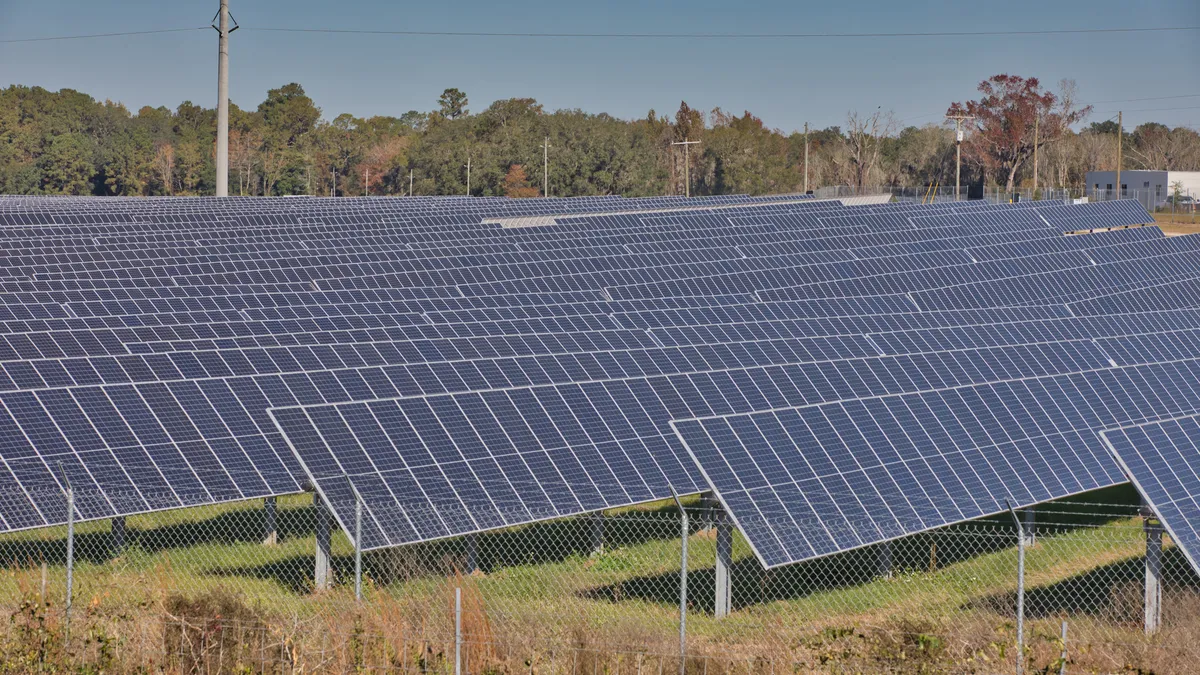Dive Brief:
- NextEra Energy and its subsidiary companies are planning to ramp up their deployment of energy storage in response to surging demand and improved economics, company leaders said April 23 during NextEra’s Q1 earnings call.
- Solar and energy storage currently represent the most economical means of generating electricity in many parts of the country thanks in part to Inflation Reduction Act tax credits, said Rebecca Kujawa, president and CEO of NextEra Energy Resources, the company's development arm.
- Between the FPL buildout and the energy resources project development pipeline, NextEra could own and operate more than 100 GW of generation capacity by the end of 2026, Ketchum said.
Dive Insight:
Florida Power & Light is set to get a lot more energy storage a lot sooner than previously anticipated.
Kirk Crews, chief financial officer for FPL parent company NextEra Energy, said company executives decided to roughly double FPL's planned battery storage deployment while updating FPL’s annual Ten-Year Site Plan for 2024, bringing the company's expected storage capacity to more than 4 GW. The company also plans to construct some of these storage projects sooner than it had anticipated in the 2023 version of the site plan, Crews said. Plans to build some 21 GW of solar generation for FPL remain essentially unchanged.
“We increasingly see storage as an economical addition in our service area,” Armando Pimentel, president and CEO of Florida Power & Light, said in later comments to investors. “My expectations are that as time goes on, we will likely add more storage to our plans going forward because it is attractive in overall economics, and especially as we continue to add solar, which continues to be the best value proposition for our customers.”
Kujawa noted that NextEra Energy Resources has also seen a significant uptick in demand for solar and storage from customers across the U.S. economy — including data centers but also manufacturing, chemical and oil and gas companies looking to decarbonize more of their operations. Many of these customers, Ketchum said, are concerned about the availability of reliable power in their area and see power supply as a key barrier in meeting their own goals.
“We believe renewables and storage are a key enabler to help meet this increased demand,” Ketchum said. “In fact, we believe the U.S. renewables and storage market opportunity has the potential to be three times bigger over the next seven years compared to the last seven.”
He later told investors that he did not believe talk of renewed solar panel trade disputes would have the same disruptive effect as the last round of tariff investigations. In addition to new domestic manufacturing capacity that is coming online, he said, the scale of the demand for solar in the U.S. coupled with relatively high prices for solar panels in the U.S. should continue to draw an adequate supply to the country even if tariffs are put in place.
“We expect that any trade actions that would occur this time around will be very manageable,” Ketchum said. “This is not circumvention 2.0.”













